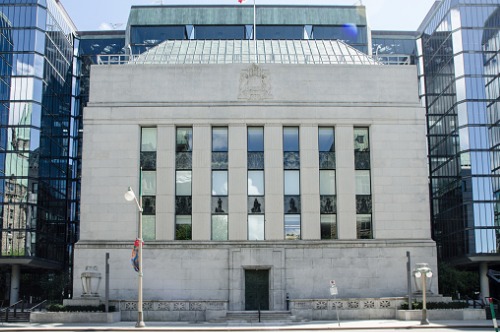The repercussions of a possible shock will likely extend far beyond the housing sector, the central bank warns

The phenomenon of Canadians purchasing homes because they expect real estate prices to keep going up is introducing severe risks to the housing market and the financial system as a whole, the Bank of Canada warned.
With “signs of extrapolative price expectations” having become apparent in major housing markets, “a large fall in house prices could weigh on consumption, particularly by highly indebted households, especially if accompanied by declines in employment and income,” the central bank warned in the 2021 edition of its annual Financial System Review.
These trends have only intensified over the past few months, which saw demand, sales, and bidding wars return in force once the economy restarted after the pandemic-induced lockdowns around mid-2020.
“When house price growth is elevated, some households may be tempted to buy now for fear of higher prices in the future. In such a scenario, housing purchases are made sooner than they normally would, raising demand and prices, particularly when supply cannot keep pace,” the BoC said. “This dynamic of higher prices then draws more buyers into the market. It can also attract investors looking to buy and then sell a property soon after to make a quick profit, which adds to demand pressures.”
Read more: Analyst: Economy’s dependence on housing activity poses grave risks
Should this trajectory continue, fears of runaway price growth “can become self-fulfilling for a time,” the bank added.
Thus, “housing demand and prices can become disconnected from underlying fundamentals,” the BoC stated. “As much as herding behaviour can push prices up, it can also lead to a future correction in house prices. Such a correction can have important implications for the stability of the financial system and the economy more broadly.”
If the shock proves sufficiently strong, Canadian households would find it progressively difficult to service their debts, in turn eroding their net worth and further barring access to valuable liquidity through credit.
The central bank stressed that any such event in the current environment would be more disastrous compared to past corrections “because a higher percentage of households now allocate a large share of their disposable income to debt servicing.”
“That leaves them less room to manoeuvre in the face of a negative income shock. Consequently, some households would have to liquidate assets or reduce their spending significantly, or both,” the BoC explained. “Vulnerabilities associated with households and the housing market are macrofinancial in nature. Thus, the repercussions of a trigger event would adversely affect both the real economy and the financial sector.”



